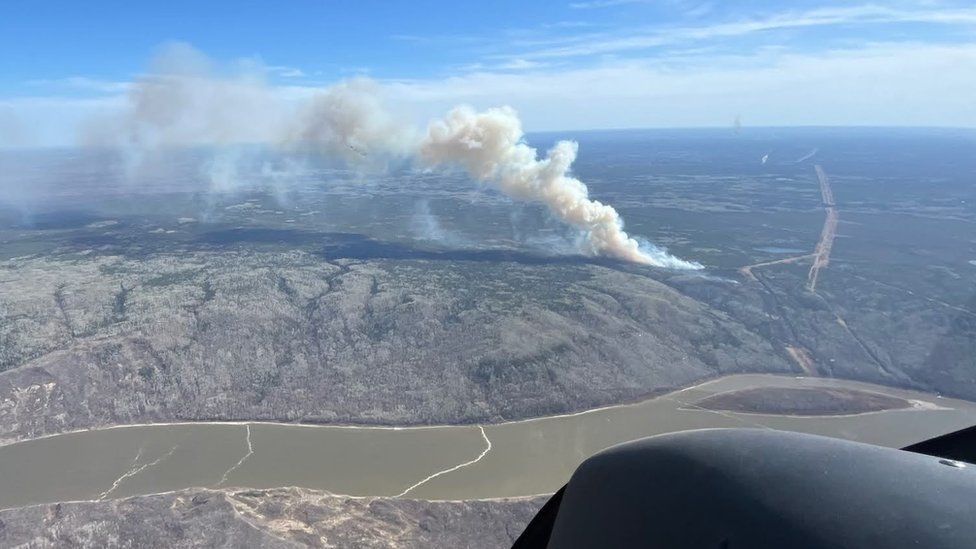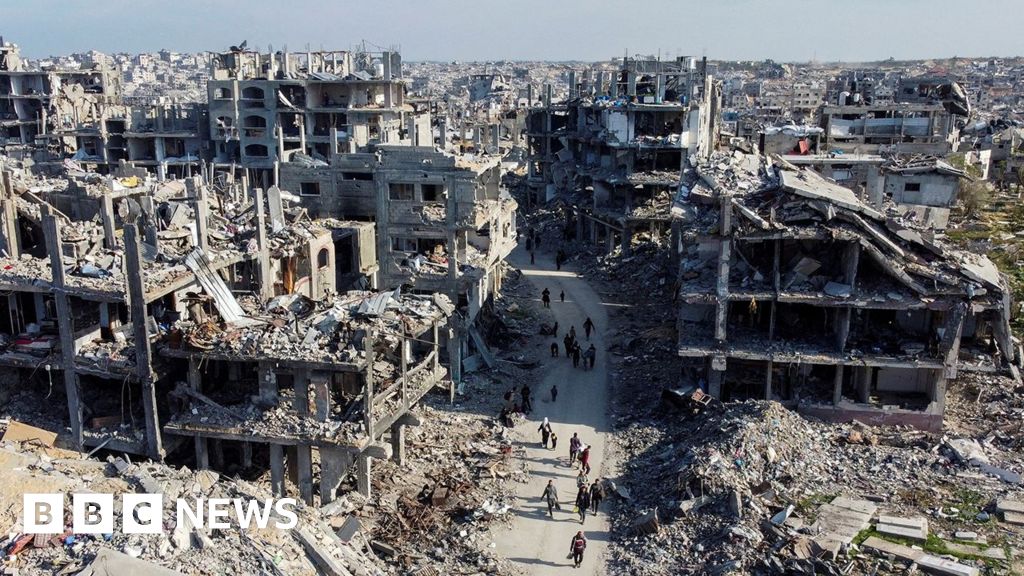ARTICLE AD BOX
 Image source, Courtesy Alberta Wildfire
Image source, Courtesy Alberta Wildfire
Smoke billows from a wildfire burning near Fort McMurray
Thousands of Canadians have been ordered to leave from their homes in Fort Nelson, British Columbia due to the threat of a wildfire.
The blaze began on Friday night and was described by officials as "exhibiting extreme fire behaviour".
Wildfires have also led to evacuation alerts and orders in the neighbouring province of Alberta.
The Canadian government has warned this year's weather conditions would mean a greater wildfire risk in the country.
The Parker Lake fire, as it's been called by the British Columbia Wildfire Service (BCWS), was 8sq km (3 sq miles) in size as of Saturday morning, after growing rapidly overnight.
Some 3,000 people in Fort Nelson - located in northeast BC about 1,600km (1,000 miles) from Vancouver - were ordered to evacuate.
Rob Fraser, mayor of the Northern Rockies Regional Municipality, told CBC News the fire began after high winds knocked a tree over and it crashed onto a power line and caught fire.
"And then by the time our firefighters were able to get down there, the wind had whipped this up into a fire that they weren't able to handle with the apparatus that we had," Mr Fraser said.
Strong winds and dry conditions are making the fire more difficult to fight, according to the BCWS.
As of Saturday, the fire was being fought by nine helicopters, as well as ground crews and a structure protection specialist, whose job it is to protect structures affected by wildfires.
In Alberta, people in the Grande Prairie region are under evacuation alerts and some have been asked to leave due to a blaze burning 4km east of the hamlet of TeePee Creek in the province's northwest.
Residents of Fort McMurray have been told to be ready to leave as an out-of-control blaze burns some 25km southwest of the city.
Last year was a devastating year for Canadian wildfires, with 15 million hectares (37 million acres) of forest burned - the most destructive season in the country's history.
Eight firefighters died and some 230,000 people were displaced from their homes.
An update by Environment Canada this week predicted challenging weather conditions that could lead to another difficult wildfire season ahead.
Higher temperatures in the spring and summer could "exacerbate the risk and intensity of both natural and human-caused wildfires", officials said.
A warmer-than-normal winter that left little snow on the ground also compounded droughts in several regions.
Globally, last year was the hottest on record. It was driven by human-caused warming, but also boosted by a natural weather system called El Niño.
Fires happen naturally in many parts of the world, including in Canada.
But climate change is making the weather conditions needed for wildfires to spread more likely, according to the UN's climate body.
Extreme and long-lasting heat draws more and more moisture out of the ground and vegetation.

 8 months ago
45
8 months ago
45








 English (US) ·
English (US) ·